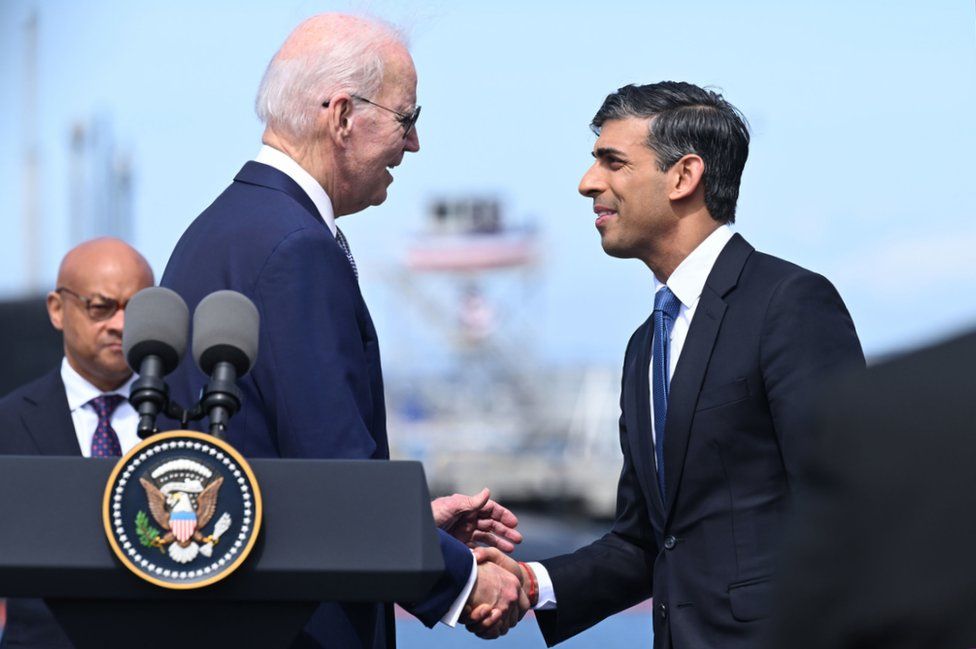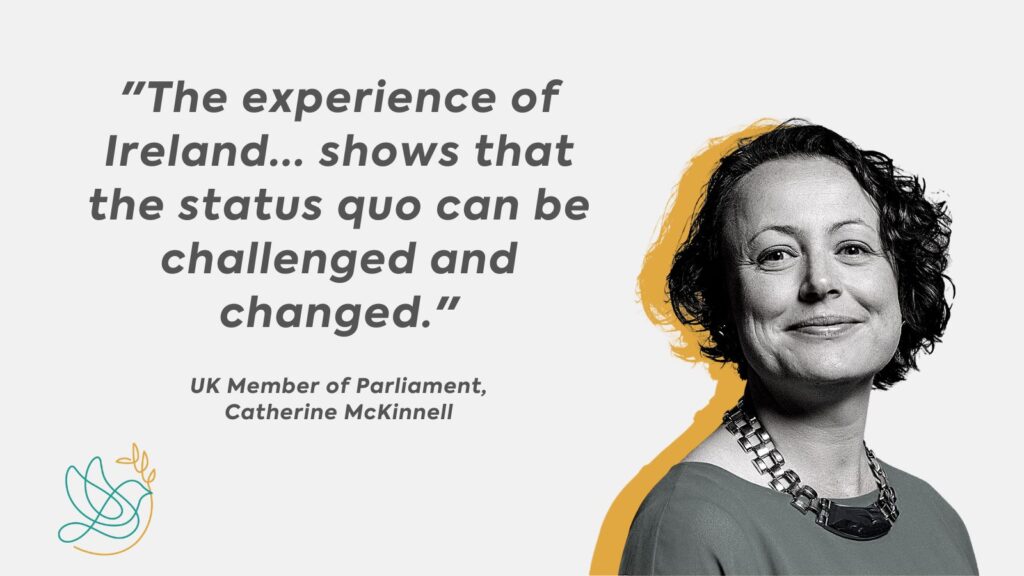On the anniversary of the Good Friday Agreement, look to Northern Ireland for insights on Israeli-Palestinian conflict resolution
On April 10, 1998, the Good Friday Agreement (GFA) marked an agreement and major development in the process that ended decades of violence in Northern Ireland. While not without its shortcomings, it remains one of the most successful examples of conflict resolution in modern history, involving deep international engagement and mediation, as well as a uniquely prominent and vital role for civil society. Last week celebrated the twenty-fifth anniversary of the signing. Politicians around the world gathered to honor the occasion, including UK PM Rishi Sunak and US President Joe Biden.

ALLMEP has long held up the Northern Ireland model when looking at the Israeli-Palestinian conflict. More than a decade ahead of the Good Friday Agreement, and thanks to bipartisan leadership in the US Congress– as well as generous support from the EU and the British Commonwealth– the International Fund for Ireland (IFI) began to support people-to-people peacebuilding activities in the region. It invested at a scale never seen before to become what the UK Chief Negotiator Jonathan Powell called “the great unsung hero” of the peace process. President Biden– who 37 years ago when serving in the Senate, voted to bring this institution into being, saying it would “demonstrate the depth of American commitment” to peace– met last week with beneficiaries of the project in Co. Louth.
The IFI remains a blueprint for multilateralism and civil society-led peacebuilding, part of the inspiration for an International Fund for Israeli-Palestinian Peace, and a model that many focused on Israeli/Palestinian peace have reflected on this past week.
As UK Member of Parliament, Catherine McKinnell recently wrote, “the experience of Ireland – where the International Fund invested $2.4bn in more than 6,000 grassroots peacebuilding projects designed to build bridges of trust and mutual understanding across the sectarian divide – shows that the status quo can be challenged and changed.” MP McKinnell continued by encouraging the UK to, “work with the US to establish an International Fund for Israeli-Palestinian Peace.”

Ittay Flescher, of ALLMEP member Kids4Peace, makes a further case for learning from the lessons of the past. “In 2019, I accompanied a group of 12 teenagers from the group to Belfast, Northern Ireland for an encounter program to explore why the peace agreement facilitated by Bill Clinton and George Mitchell took hold there much more effectively than the one facilitated in Oslo 30 years ago. Our goal was to see what we could learn from peoples plagued by sectarian hatred in their city.”
Quoting the writing seen on the walls in Belfast, Flescher reminds us, “A nation that keeps one eye on the past is wise. A nation that keeps two eyes on the past is blind.”
It is important that we look to these lessons and learn from the past. For example, the international community allocated more than $44/person each year to people-to-people activities, starting twelve years before the Good Friday Agreement. In contrast, less than $2/person has been spent on these activities in Israel and Palestine. An International Fund for Israeli-Palestinian Peace could support and scale civil society at a level that could match the depth of the conflict on the ground, reaching investments comparable to those seen in Northern Ireland which proved so transformative.
ALLMEP Executive Director, John Lyndon, was recently interviewed on France24, discussing the escalation of violence in the Middle East, and when it’s coincidence with the 25th anniversary of the Good Friday Agreement was raised, he remarked, “It’s really interesting because it’s the thirtieth anniversary of the Oslo Accords this year too, and you can see next to each other two very different exercises in conflict resolution. One, not perfect, but so much more successful than the other, and I think the real lesson to learn from them is deep engagement from the United States and the International Community and also this long-term civil society approach.”
With important anniversaries of both the Good Friday Agreement and the Oslo Accords falling this year, which has already had the most violent opening of any year in decades, it is important for those who care about peace to reflect on both models, and perhaps borrow and implement some ideas that might help shape a better, more just and more peaceful future for Israelis and Palestinians.
